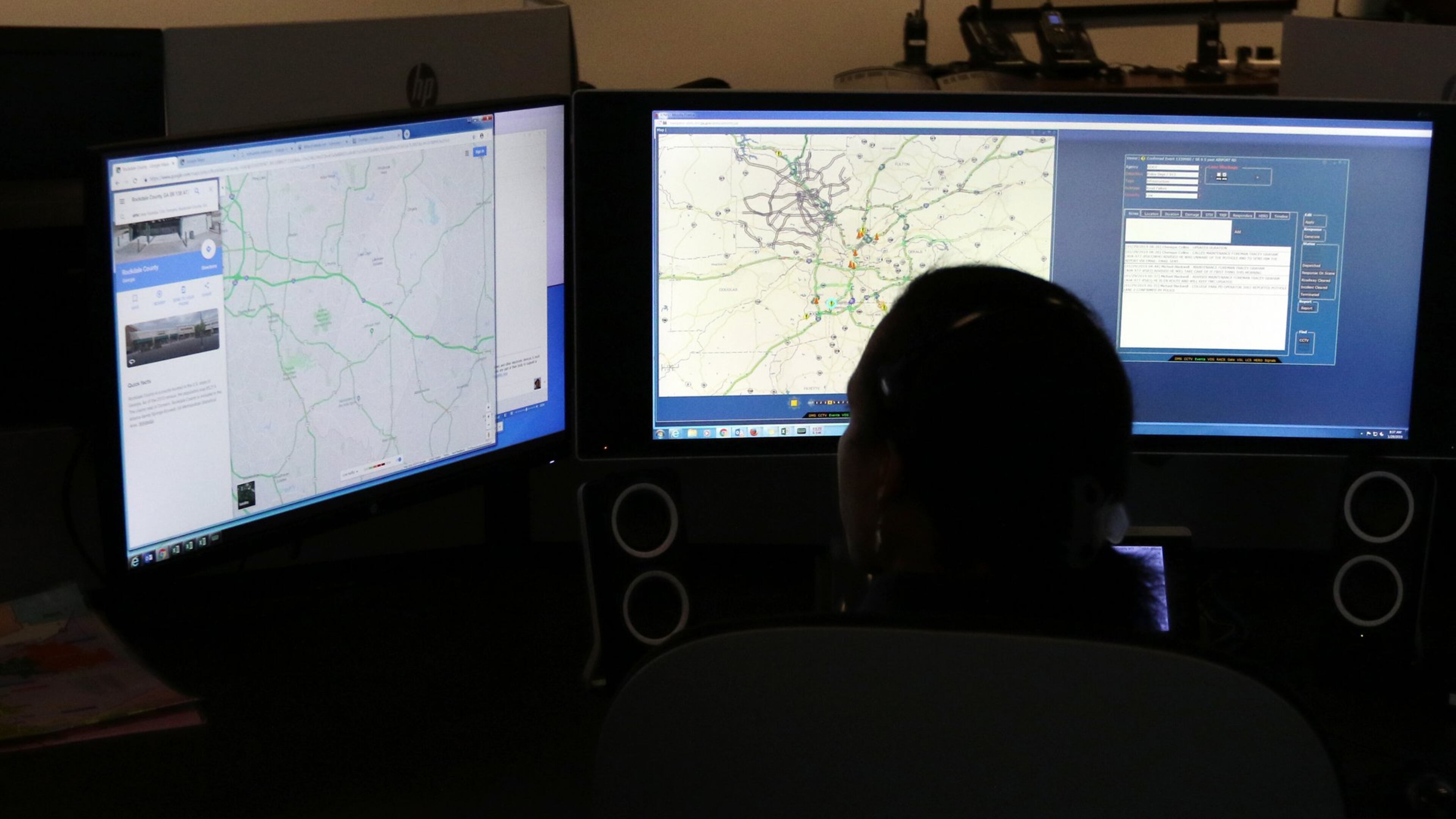Georgia DOT opens up its playbook to keep Super Bowl traffic moving

In a second-floor room overlooking a two-story bank of enormous video monitors, a group of Georgia traffic engineers spent a few minutes Tuesday morning making life a little easier for Tom Brady and the New England Patriots.
The team was departing its downtown hotel on buses bound for Georgia Tech's Bobby Dodd Stadium, where they would practice for Sunday's Super Bowl. It was a 2-mile trip through 15 traffic signals. But thanks to a police escort and these traffic engineers — who helped the buses catch 14 green lights — the trip took just five minutes. The one red light was a mistake.
“It’s probably the quickest you’ll ever get from downtown to Georgia Tech,” said state traffic engineer Andrew Heath, who watched the operation.
> RELATED: List of streets closed around the Super Bowl in Atlanta
If you venture downtown this week, don’t expect to get the Tom Brady treatment. But the Georgia Department of Transportation and other agencies are using similar techniques this Super Bowl week to ensure traffic is, well, as good as it’s likely to get when 1 million visitors come to Atlanta.
Against the advice of just about everyone, thousands of people are expected to arrive at the Super Bowl and related events by car. They'll find some streets and lanes closed, limited parking and — on game day — thousands of pedestrians getting in their way.
It will fall to GDOT, the Atlanta Police Department, the Georgia State Patrol and other agencies to manage much of the traffic. On Tuesday, GDOT traffic engineers offered The Atlanta Journal-Constitution a glimpse of how they’ll do it at the agency’s Transportation Management Center in Atlanta.
In short, they’ll monitor traffic cameras and pre-empt stoplights as needed to keep vehicles moving.
GDOT can monitor hundreds of cameras throughout Atlanta to ease the travel of the football teams, the players’ families, VIPs, the media and others in town to Super Bowl events. On Tuesday alone, the agency worked its stoplight wizardry to aid the passage of both teams to their practices and media hordes to various press conferences.
It will do the same for other events throughout the week — even a Super Bowl coin-flip rehearsal on Saturday. It’s part of metro Atlanta’s “welcome” to the National Football League and its guests for the biggest football game of the year.
“We’re being a good host today,” GDOT spokeswoman Natalie Dale said.
But engineers use the same techniques to keep traffic moving for everyone at big events downtown. They’ve had plenty of practice at recent events such as the Southeastern Conference football championship and various concerts.
There’s some evidence it’s working. Though downtown saw up to twice the normal traffic volume this past weekend, traffic moved a little better than it usually does, said Matthew Glasser, GDOT’s regional traffic operations program manager.
Managing traffic for an event such as the Super Bowl is a big operation. On Tuesday, it took a dozen engineers and others at the Transportation Management Center, plus 10 more people in the field, ready to replace or reboot equipment if something went awry.
On Super Bowl Sunday, even more people will be needed. And that’s not counting the police who direct traffic and serve as eyes and ears on the street.
So it’s not something GDOT can do for most events. But this week’s big game is, well, like the Super Bowl for traffic engineers.
“This is probably one of the most ambitious — if not the most ambitious — plans that’s been put together for a Super Bowl,” Glasser said.
Perhaps. But even traffic engineers say driving to the Super Bowl is not a good idea.
Key roads will be closed near Mercedes-Benz Stadium. Some lanes will be closed even on roads that are open. And many parking decks have been commandeered by the NFL and others.
“MARTA’s going to be an excellent way to get in,” Glasser said. “In terms of convenience and travel time, we can’t recommend MARTA more.”


